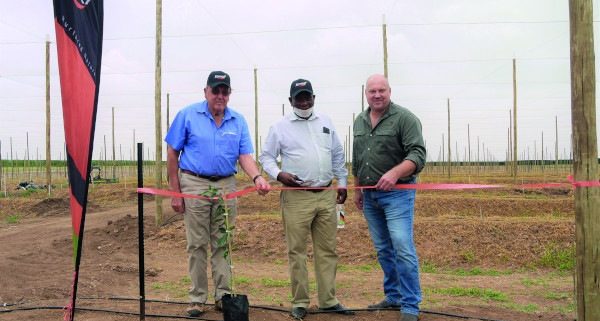Partnerships that work – African Farming
Thanks to a major investment by SA Breweries (SAB), the Moletele community now boasts a lime orchard project, in which they are the majority shareholder in partnership with the Komati Group. Along with SAB, the new company planted the first lime trees on a 60ha development at their Richmond Kopano Farm at Hoedspruit last December.
The plantings were done in three stages, with the second and third phases in January and March. Corona Extra, a beer in the Anheuser-Busch InBev’s stable produced by SAB, is served with a slice of lime. For that, the company needs a reliable source of limes.
Josh Hamman, head of SAB’s agricultural division, says that although limes are not part of the brewery’s core product line, it’s an important part of the Corona offering and of the alcohol industry in general.
Therefore, SAB is financing the establishment of the orchards on the condition that they have first option to purchase the limes. The Moleteles and their partners are free to sell any surplus limes to other markets.
The lime orchards are grown under shade netting, and solar-powered irrigation forms part of the R32m investment. It will also be managed so that limes can be produced throughout the year.
A PARTNER’S PERSPECTIVE
Komati Group CEO Piet Smit says the agricultural company is involved in several lease agreements and strategic partnerships with other communities and finds the Moletele CPA particularly well organised.
He is impressed with the community’s corporate governance principles specifically, as well as the management committee’s transparent approach to transactions and to acting in the community’s best interests.
“They have a good vision for the land that has been returned to them, and a clear understanding of how to strike a balance between community interests and a stable larger agricultural landscape.”
Piet says he was also struck by the Moletele community’s patient approach to businesses operating on their land.
“They are willing to invest the time and energy to learn commercial practices and management principles instead of wanting to take over at the outset,” he explains. “I can only say good things about them and I hope the Komati Group and the Moleteles will be farming together for many more years.”
FUTURE COLLABORATION
Although the Moletele CPA is still considering what type of agreement works best – farming in partnerships or simple leases – they foresee a long future of collaboration with commercial farmers.
“We know the Afrikaner people love their land, that they will fight for it. We also love that land. We think that, together, we can build a better future for us all on that land,” says Elphas.
Commercial farmers who are faced with land claims should talk to the claimants and listen to their views, Albert adds. In the Moletele case, it’s essential that the Hoedspruit area continues to contribute to the economy.
“In the early morning and late afternoon, you’ll see thousands of farmworkers at bus stops in the area. These are our people, who come from places like Acornhoek to work on farms – in many cases on our farms. If we can maintain and even create such jobs through strategic partnerships, we are on the winning path,” says Albert.
Elphas says commercial farmers’ fears that they will be kicked off the land at the end of 20-year contracts are born out of horror stories spread by some farmers.
“Yes, we want to be trained by our partners and send our children to study at universities in fields that will help them play a bigger role in managing our land, but with our partners.”
To find out more, email Albert Thabane at aqthabane@gmail.com.




Leave a Reply
Want to join the discussion?Feel free to contribute!